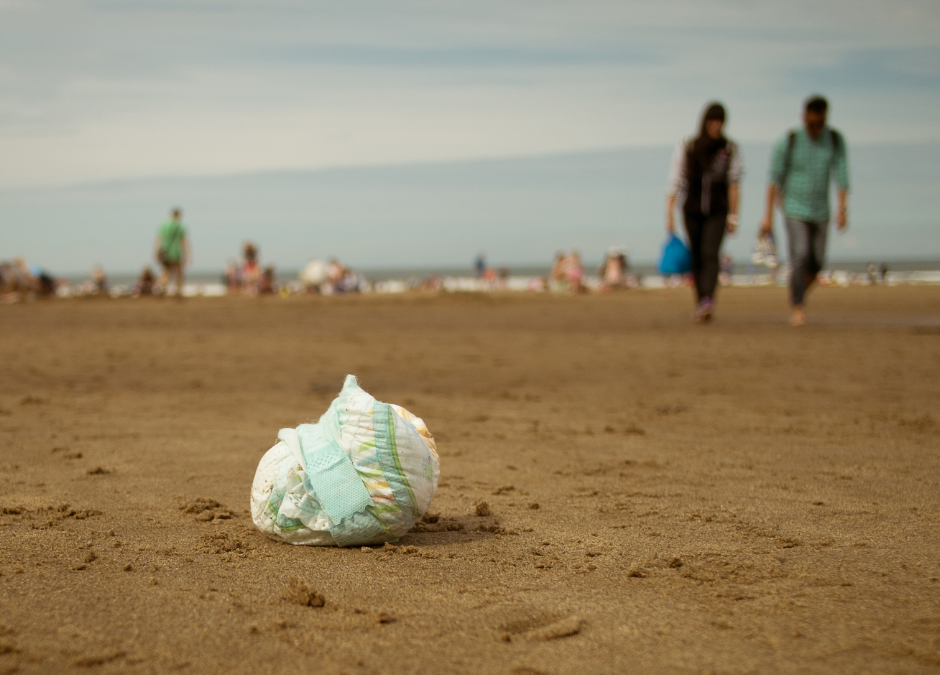Building on initiatives underway in Vanuatu that are exploring solutions to disposable nappy waste – the single largest contributing item to waste in Vanuatu’s capital – EWB is now working on a project to assess solutions to this challenge in 15 countries across the Pacific region.
Over the past twelve months, EWB’s team in Vanuatu has been trialling solutions to two sides of the nappy waste problem – the development of the right kind of washable nappy, and the development of the right technology to wash them. This work is in response to Vanuatu’s bold goal to ban the use of all disposable nappies – and be the first nation in the world to do so. In collaboration with Mama Laef, EWB has been supporting the trial of various reusable nappy prototypes. Alongside this, we are working with The Washing Machine Project trialling a prototype of a tumble drum – a non-electric washing machine that takes into consideration the inconsistent power supply experienced by remote communities, and optimal water efficiency.
A prototype of the tumble-drum machine, in partnership with the Washing Machine Project.
A Pacific-wide nappy solution
Momentum is now building across the Pacific to address this challenge more broadly. An interesting initiative seeks to understand how this same challenge can be addressed within other countries in the Pacific region. The Secretariat of the Pacific Regional Environment Programme (SPREP) PacWastePlus project seeks to improve and enhance waste management activities and the capacity of governments, industry and communities to manage waste to reduce the impact on human health and the environment. The disposal nappy project comes under this broad remit.
The initiative includes 14 Pacific Island countries – Cook Islands, Federated States of Micronesia, Fiji, Kiribati, Nauru, Niue, Palau, Papua New Guinea, Republic of Marshall Islands, Samoa, Solomon Islands, Tonga, Tuvalu and Vanuatu – as well as Timor-Leste. The program focuses on targeted priority waste streams, one of which is solid waste and the wastewater that is impacted by solid waste.
Disposable nappies are just one of these solid waste items, creating considerable environmental damage, particularly to waterways. Once soiled, faecal matter becomes a potential source of E.Coli and other bacteria, causing diarrhea and other chronic illnesses that are dangerous to human health. They are a major contributor to public waste and are reported to take up to 500 years to biodegrade. In Vanuatu, the Commonwealth Litter Programme (CLiP) found disposable nappies represented a 26% by weight of litter found. But it is an item commonly found littered across beaches, waterways and vacant land across the Pacific region.
Implication for women as primary care-givers
Of the many waste items that the broader program seeks to address, nappies bring with them specific social-economic and gender-based considerations. Across the Pacific region, women are the primary carers of children and babies and are mostly tasked with household duties. It’s a key consideration of this project, to ensure that solutions do not have a disproportionate impact on working women.
Project objectives
The project’s focus will be a socio-economic, technical review and assessment of alternatives to disposable nappies that are suitable for the Pacific region and the remoteness of communities within these island nations. This also includes alternatives to traditional washing systems that reduce contamination of the environment. Field analysis and testing will be core to ensure various alternatives are suitable in the Pacific context. Current perceptions, cultural and traditional practices, climatic variability, barriers, opportunities, and the availability of locally-sourced materials are just some of the considerations to be assessed and analysed.
It’s a project which has the potential to develop sustainable solutions to a critical issue, and support Pacific island nations to move towards a more circular economy, addressing one of the most widespread wicked problems: waste.


